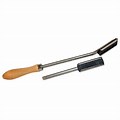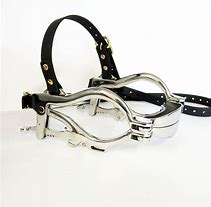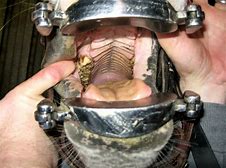Equine Dental Care
Since a horse’s teeth are constantly erupting, they would continue to grow longer if the horse did not naturally grind them down when he chews. Due to the anatomy of the mouth, the teeth in the wider upper jaw are not set evenly with the teeth in the narrower lower jaw. Most of the grinding surface of the teeth is contacted, but not the edges. As the horse gradually wears down its teeth, he does so unevenly. The uneven wearing causes sharp points that can cut and pinch the cheek along the upper molars. They can also lacerate the tongue along the inside of the lower molars.
Some of the most common dental procedures performed are removal of sharp points (floating), removal of caps (retained deciduous premolars), removal of retained incisors, extraction of wolf teeth, and removal of long hooks. Other less common and more complex problems include dealing with tall teeth, broken or loose teeth, abscessed teeth, and misaligned incisors.
Several tools are used to float your horse safely:
Hand Floats - Long handled instruments that have a rasp on the end, used to file sharp tooth edges until they are dull. Floats come in a variety of sizes and shapes to reach different parts of the horse's mouth
Power Float - A power tool that has a small grinding disc mounted on a handle attached to the electricity-powered base. This instrument allows each tooth to be addressed individually and can be done in less time and with less trauma to soft tissues then manual floating.
Speculum - A device that is placed in the mouth to help keep the mouth open.
Sedation - Medication used to make your horse feel sleepy and relaxed. The medications used act quickly, keep your horse standing, and wear off in 15 to 30 minutes.
A horse may show a variety of signs that indicate a need for dental care:
Dropping feed while chewing and holding his head at a funny angle
Balling up hay and holding it in his cheeks because it hurts to chew
Weight loss
Undigested grain in the manure
Odd behaviors under saddle, including head tilting, head tossing, resistance to the bit, or even poor responsiveness to the rider due to mouth irritation



